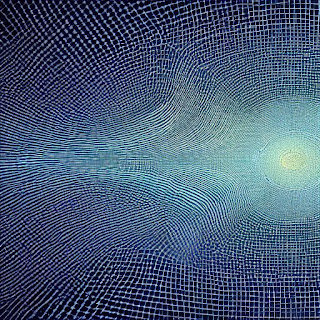All procedural generation of artificially intelligent content starts with a random number, which is like the seed from which all the rest grows, and that way each one can be different, and unique. But as our computers become more intelligent, that number isn't random enough.
The problem is that randomness is not an absolute thing, and it's easily described by the law of large numbers -- Flip a coin 100 times and you have a 50% chance of it landing on heads (or 100% chance of 0.5 heads!), but flip it 1 trillion trillion times and it's no longer 50% but some different number caused by any variations in the system, like the printing on the respective faces of the coin adding extra weight to one side, or the flipping mechanism having its own pattern, or even errors in identifying, where one side is more commonly misidentified as the other -- After trillions of coin flips, other variables sneak in, and they take away the randomness.
As our technology gets more sensitive and also more complex, it creates more spaces for these variables to sneak into the randomness.
And we can't be each having non-random reality instantiations. That would be like two people having been given the same bank account number, but for their whole reality, and the multiple realities that we'll be living in all at the same time, soon enough. Imagine if your digital twin got mixed up with someone else's, and your automated medication regimen executed by ingestible programmable drug delivery nanobots changes in accordance with the other person's digital twin, but for your body, and now you're dead.
That's not something we want to roll the dice with.
Quantum random number generator sets benchmark for size, performance
Jul 2021, phys.org
via American Institute of Physics: "18.8 Gbps real-time quantum random number generator with a photonic integrated chip," Applied Physics Letters (2021). DOI: 10.1063/5.0056027
Researchers use tiny magnetic swirls to generate true random numbers
Feb 2022, phys.org
Brown University: Kang Wang et al, Single skyrmion true random number generator using local dynamics and interaction between skyrmions, Nature Communications (2022). DOI: 10.1038/s41467-022-28334-4
Using quantum fluctuations to generate random numbers faster
Apr 2023, phys.org
via Ghent University Interuniversity Microelectronics Center, Technical University of Denmark and Politecnico & Università di Bari: Cédric Bruynsteen et al, 100-Gbit/s Integrated Quantum Random Number Generator Based on Vacuum Fluctuations, PRX Quantum (2023). DOI: 10.1103/PRXQuantum.4.010330


No comments:
Post a Comment